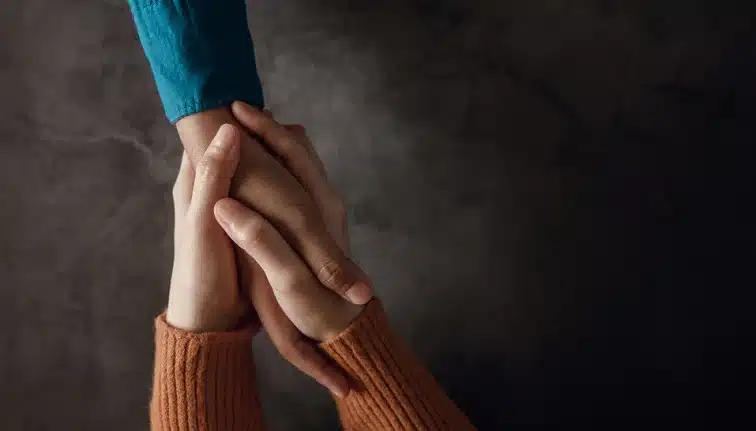It is natural to worry, but panic is harmful. Dr Debanjan Banerjee sheds light on the significance of mental wellbeing for all and the need for counselling for quarantined patients during the COVID-19 pandemic.
When a 23-year-old man in quarantine recently jumped off from the seventh floor of a hospital building in Delhi, after being suspected positive for COVID-19, it raised several questions. How is this pandemic impacting our mental health? How do we address the need for counselling in quarantined or isolated patients? How do we help people with mental health issues, who are more vulnerable, in these difficult times?
The worldwide hysteria about an illness with unknown cure and the prevalent uncertainty is understandable. It emphasises the importance of psychological care for all and the need for counselling, especially in quarantined patients, at the time of a pandemic.
All alone
Isolation breaks social bonds and distances relationships. The person starts feeling more stigmatised as being the ‘infected’ or ‘carrier of infection’. This can lead to panic attacks, chronic stress, insomnia and depression. Death wishes are dangerous offshoot.
People with pre-existing anxiety disorders, adjustment disorders, depression, obsessive-compulsive disorders and delusions are more severely impacted by the fear and anxiety of pandemics. This has led to an upsurge at our out-patient services, with an increase in the patients’ previous symptoms, in relation to the COVID-19 scare. Almost all of them demand testing and early prophylactic measures, either misinformed by a faulty social media message or expecting a ‘magical’ cure.
In Karnataka, the Health Department initiated mental health counselling for all isolated people since the first case was reported. This is a welcome measure, as mental wellbeing is largely neglected. According to data from District Mental Health teams, over 4,000 people have been counselled regularly and follow-up using surveillance teams. Some are being treated for depressive and anxiety-related disorders.
“Quarantine can prove very effective for containing the viral spread. However, it takes an immense toll on mental health. The constant agony and apprehension that they go through, the distance from their loved ones and misconceptions about the global situation can cause severe stress, affecting recovery,” says Dr Dinesh Kumar, a senior psychiatrist.
This stress is often communicated to their families, who might also be in isolation. In fact, this tension, lack of autonomy and misinformation are the main reasons why people escape isolation, which has dire public health consequences.
Matter of misinformation
Dr Wu, a senior psychiatrist from the Institute of Mental Health in Xiangya Hospital, Wuhan, stresses the role of misinformation in the current scenario. Given the information overload every day, the public rarely gets the chance to establish the authenticity of any information. So, the routes of viral spread, transmission, mortality, and precautionary measures become ‘ever-changing’ data and causes of anxiety and fear.
Also, people with mental health issues are more vulnerable, when bombarded with information. Anxiety triggers the sharing of false information and increases in faulty treatments. They skip early detection and appropriate testing for the same reasons. Even simple precautions tend to be far-fetched for them.
Gadget dependence is another concern. With more people working from home, the internet becomes a go-to for emotional solace. This behaviour has led to a vast increase in ‘screen time’ (total time spent on any digital media) over the last few weeks, mainly for young adults. Social distancing though required, further compounds this by extra diversion towards the web-world for emotional ties and to fight loneliness. This ‘virtual socialisation’ in turn magnifies the inner emptiness and tension.
Social networking leads to more misinformation, which is counter-productive to stress. Recent studies published in The Lancet on the mental health condition of those isolated in China report increase in sharing of information, irrespective of its ‘truth’, when a person is anxious. This harms precautions and aids in the spread of the pandemic. When physical mobility gets restricted and the entire social world is limited to gadgets, it creates a ‘constricted’ view of reality, thereby enhancing one’s gullibility. Ruminations, obsessive thoughts of infection and compulsory web-surfing to find the ‘right’ answers then follow, which are further harmful.
Step in time
Pandemics like COVID-19 affect every sphere of life, starting from food storing, consumption, mobility, occupation and travel, eventually changing the very quality of life, adding to the already existing panic and frustration. This increases the hoarding behaviour, leading to a shortage in supplies of essential medical equipment and drugs. Anger against the authorities and defiance are also common outcomes of such agitation.
Mental health is an important pillar of public health, which if neglected will bring down the entire structure of recovery. At times of crisis, human behaviour is already vulnerable and unpredictable. It is natural to worry, panic is harmful. If we have to contain COVID-19, collective responsible behaviour, like hand hygiene and social distancing, are the key strategies. This needs composed and thoughtful minds. Protecting the mentally vulnerable, paying adequate attention to the mental wellbeing of those isolated and arranging for counselling sessions for those at maximum risk (healthcare workers, patients with mental disorders and contacts of the infected) can make a big difference.
Our experience shows that a step as simple as an hour of weekly telephonic counselling has improved the work-quality of nurses and bettered the sleep and anxiety levels of the infected in isolation. Sensitising allied specialities and other grassroots-level health workers to the need for early mental health interventions are the keys to this process. It is a more proximal target than the anti-virals and vaccines against COVID-19 that are on their way. Let us preserve our mental health to strengthen this global fight of humanity!
(The author Dr Debanjan Banerjee is a Geriatric Psychiatrist at NIMHANS, Bengaluru and also a member of First Check, an award-winning fact-checking initiative of Health Analytics Asia. )

















